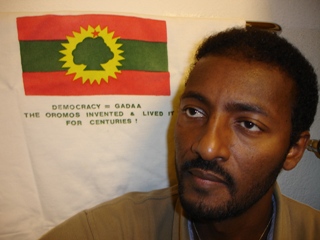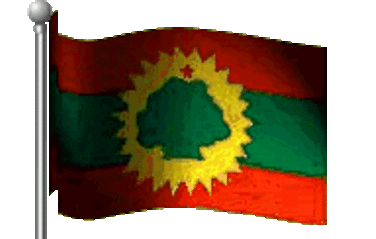Ethiopia, Eritrea and Kenya remain poor in freedom ranking: watchdog
According to the Washington-based international organization Freedom House, Ethiopia remained poor in its freedom index, identified as “Partly Free” with a score of 5 in both political rights and civil liberties. On a scale of 1 to7, a rating of 1 indicates the highest degree of freedom and a rating of 7 implies the lowest amount of freedom, thru which countries are classified as “Free”, “Partly Free” and “Not Free.”
In the region, Kenya received a score of 4 and 3 but remained in the “Partly Free” category. Eritrea received a score of 7 in political rights and 6 in civil liberties, placing it in the “Not Free” category. Sudan, Egypt and Somalia are also graded as “Not Free” while Djibouti and Somaliland are placed in the “Partly Free” group. Only nine countries are ranked high in the “Free” category in Africa, including South Africa, Botswana and Ghana.
According to Freedom House, the situation remained the same in Ethiopia, with leaders of some opposition parties in jail, “severe restrictions on the rights of trade unions” and “government repression of the Oromo ethnic group” on allegations of OLF links. Meanwhile, Kenya suffers with corruption issues and it has a coalition government that “lacks an opposition,” according to Kenyan media Daily Nation. Eritrea remains a one-party state and it is the only African country with no private media, according to BBC country profile.
Press “Not Free”
Separately surveyed on its press freedom, Ethiopia remained in the “Not Free” category due to reported crack down and restrictions on several private media outlets. The study covered the extent of censorship, legal constraints, state bureaucratic measures, media control by the government and dominance of pro-government private newspapers in Ethiopia. The study also analyzed the Ethiopian government’s policy on placing “prohibitively high costs on the establishment and operation of media outlets” as well as “extralegal intimidation or physical violence by state authorities.”
Several independent and private newspapers have been closed in Ethiopia due to security, legal and financial reasons while many journalists and editors routinely get fined or jailed for ill-defined allegations of defamation. There is no linguistic diversity in the private media and the reach of the remaining private newspapers is mostly limited to the capital Addis Ababa and its surroundings.
Advocacy
Though Freedom House comprehensively examines the state of freedom in all 193 countries and 16 strategic territories, its advocacy work remains restricted to rivals of the United States and the West, particularly Iran, Russia and China. Founded in 1941, the organization promotes the growth of freedom by influencing U.S. government policy makers and international institutions.
Ghanian analyst Nii Akuetteh says the new Obama administration is likely to make “no noticeable improvement” in America’s foreign policy of freedom and democracy promotion. Nii Akuetteh is an activist, scholar and analyst for Foreign Policy In Focus (FPIF) and the founder of the Democracy and Conflict Research Institute (DCRI).
Akuetteh said anti-communism was an American Foreign policy goal that allied the United States with dictatorship regimes around the world during the Cold War. Since then Oil, Pro-Israel factor, corporate America lobby and the global "War on Terror" influenced American foreign policy concerning democracy. During the last five years, Ethiopian opposition parties accused the Bush administration of using the “War on Terror” as an excuse to ignore repression inside Ethiopia.
In some cases, America faces tough choices between Oil and “War on Terror,” with its top Oil provider and ally Saudi Arabia being one of the main exporters of Wahabist Jihadism around the world as well as the Pro-Israel Egypt supporting radical Islamists in Somalia since the Ogaden war, according to UN Security Council reports and the Monitoring Group.
However, many U.S. administrations and presidents have made strong speeches in support of democracy and freedom through out the years. Previous U.S. Secretary of State Condoleezza Rice said the United States “pursued stability at the expense of democracy… we achieved neither. Now we are taking a different course.” Similarly, former President Bush said “the pursuit of security at the expense of liberty would leave us with neither one.” During his inauguration address this week, President Obama also added “to those who cling to power through corruption and deceit and the silencing of dissent, know that you are on the wrong side of history” and “we reject as false the choice between our safety and our ideals”
But Akuetteh said “speeches are one thing and actual implemented policy is quite another.”


